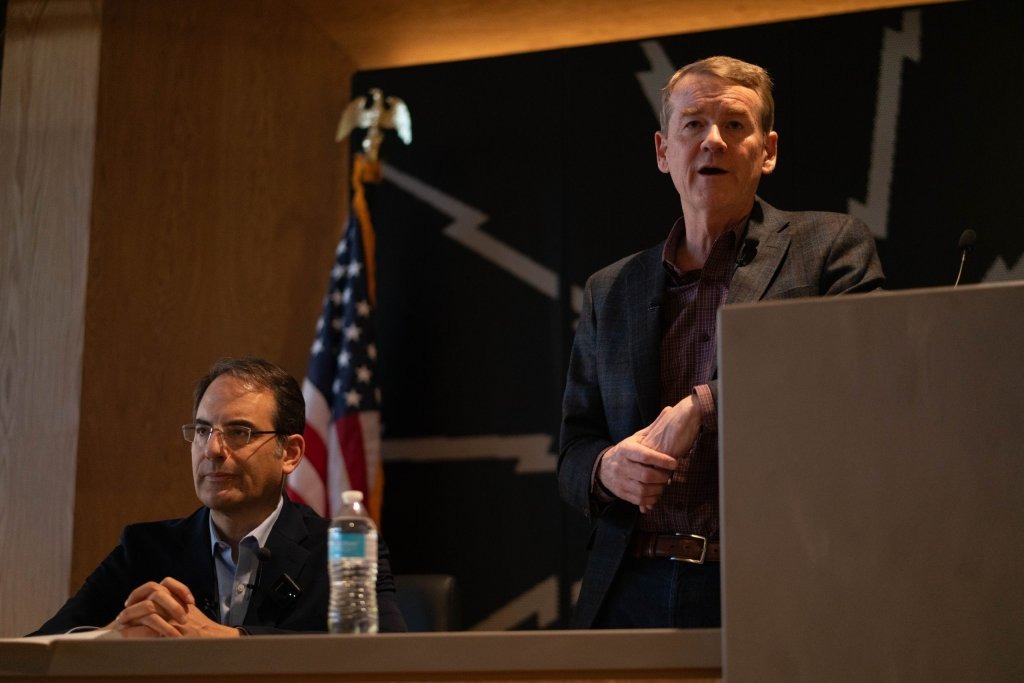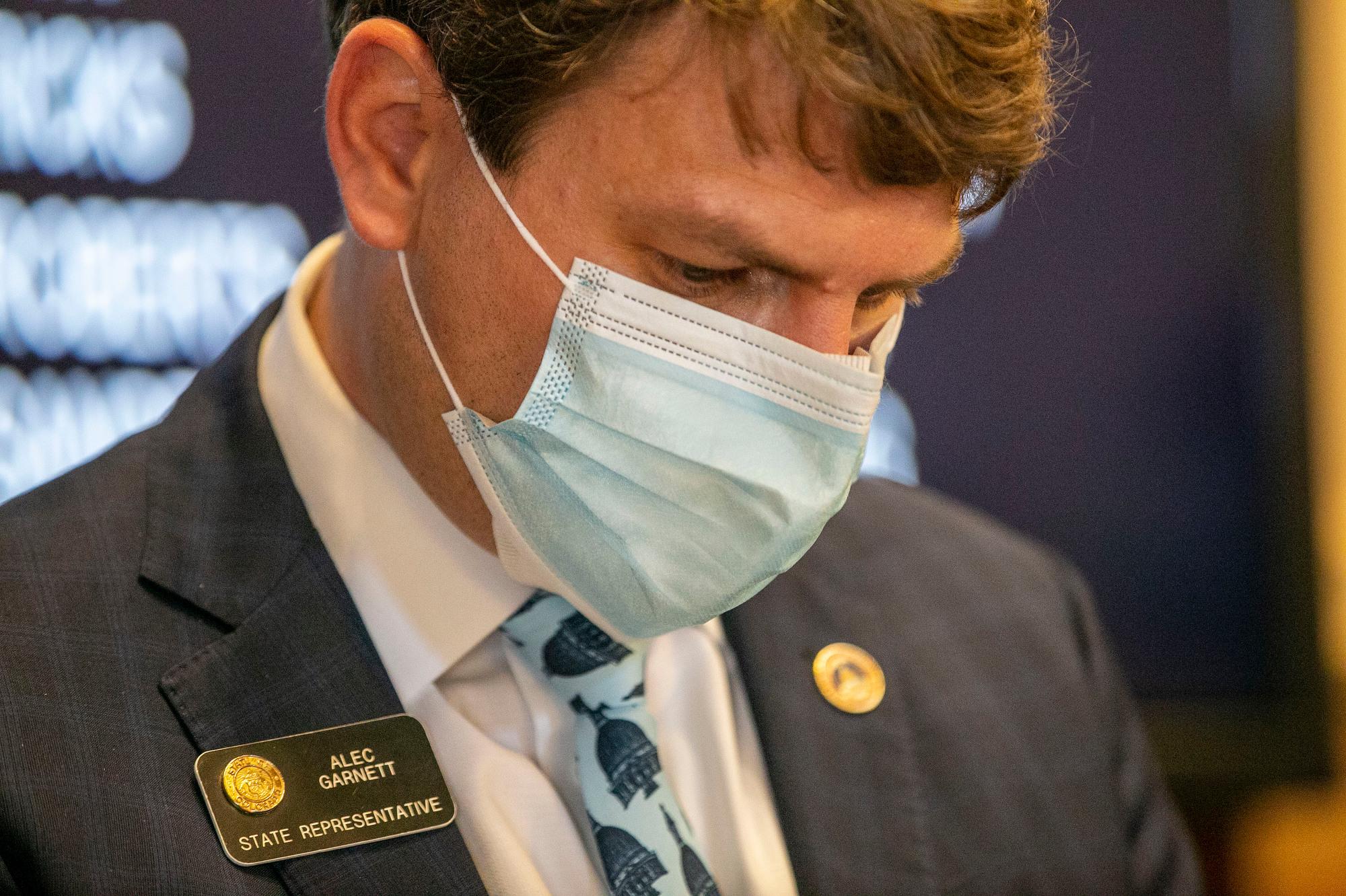
State lawmakers return to the Capitol to begin trying to dig Colorado out of the economic, social and health impacts of the pandemic.
For the third year in a row, Democrats hold a majority in both chambers. Things have changed in the House though, where both parties are operating with new leadership.
House Democrats chose Denver Rep. Alec Garnett to lead the chamber shortly after the November election. His selection as Speaker didn’t come as a surprise to anyone in political circles; the 37-year-old had served as House Majority Leader under the previous Speaker, KC Becker, who was term-limited.
Even as he moved up the leadership ranks in recent years, Garnett also made a name for himself by successfully helping pass major pieces of legislation, such as the 2019 “red flag” gun law. While he’s known for having a steady, calm presence, he has not been afraid to show emotion at times.
During the historic debate that resulted in the expulsion of former Rep. Steve Lebsock for sexual harassment and retaliation, Garnett revealed on the House floor in tearful remarks that he had been wearing a bullet-proof vest to work for weeks out of fear for his personal safety. Garnett was one of the first people to publicly corroborate allegations from one of Lebsock’s accusers, Sen. Faith Winter.
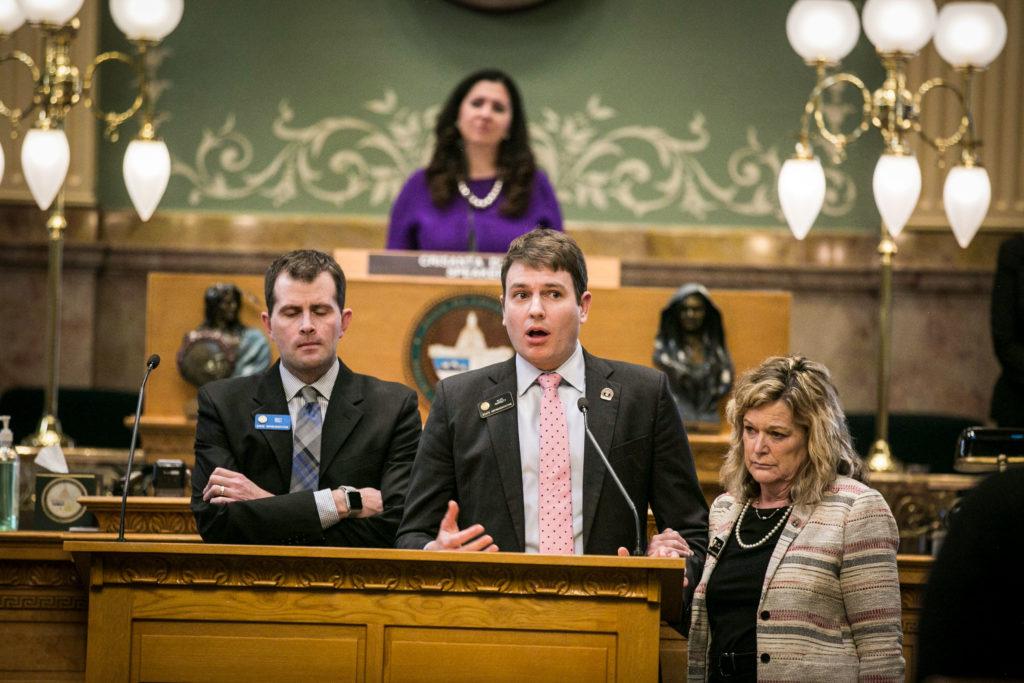
Nathaniel Minor/CPR News
In his new role as Speaker, Garnett is in charge of helping shepherd major bills through the legislature, while also managing dozens of lawmakers and dealing with any issues that arise, both big and small.
Pandemic recovery will be a top priority for his caucus.
“Helping Colorado build back stronger, or build back to the place we were pre- pandemic. Because the foundation of our economy was strong,” he said. “But we'll also have a lot of space to work on the issues that constituents have been talking to members on both sides of the aisle about over the last couple of years.”
Those other issues could include finding deals on transportation and education funding and taking another try at bringing down health care costs.
A view of toddler toys and eight hours a day on Zoom
For the better part of the past year, like almost everyone else in the legislature, Garnett has had to work remotely at home in his district which covers parts of central and south-central Denver.
Garnett lives with his wife and two young children in a nearly 150-year-old house in the Capitol Hill neighborhood. His home office consists of a desk tucked into a corner of his two-year-old daughter’s bedroom, with a view of toys and stuffed animals.
“I pretty much sit here for eight hours a day on Zoom,” Garnett said. “That’s just the way it is and it’s been that way since we went into temporary adjournment last March.”
For his relatively young age, he’s had a long career in Colorado politics. He was executive director of the statewide Democratic Party and worked for Congressman Ed Perlmutter. His father, Stan Garnett, is a prominent attorney who previously served as District Attorney in Boulder.
“I do think that everyone wants to be Speaker. Every Democrat, every Republican, I think they would be lying if they said they didn't want to,” said Garnett. But it’s not a position everyone is necessarily suited for. “One of the issues that you don't think of is how much drama comes with the speakership. So you have to be able to try to bring people together and listen and be, you know, as fair as you possibly can.”
Democratic Rep. Kerry Tipper of Lakewood said the caucus never considered anyone else for the job. She described Garnett as thoughtful and respected. “He doesn't have knee-jerk reactions, I think he really takes time to process information. That said, he is decisive.”
Tipper admits there were times during 2 a.m. floor debates when he was majority leader that she personally wanted Garnett to be more assertive with reining in Republicans. Ultimately she said she appreciates that he doesn’t lose his cool and gets things done in a nice way, most of the time.
“Having seen him get mad once or twice, it's kind of like... when your parent is, not mad at you, but they're disappointed. You just feel horrible. You're like, ‘I'm sorry.’”
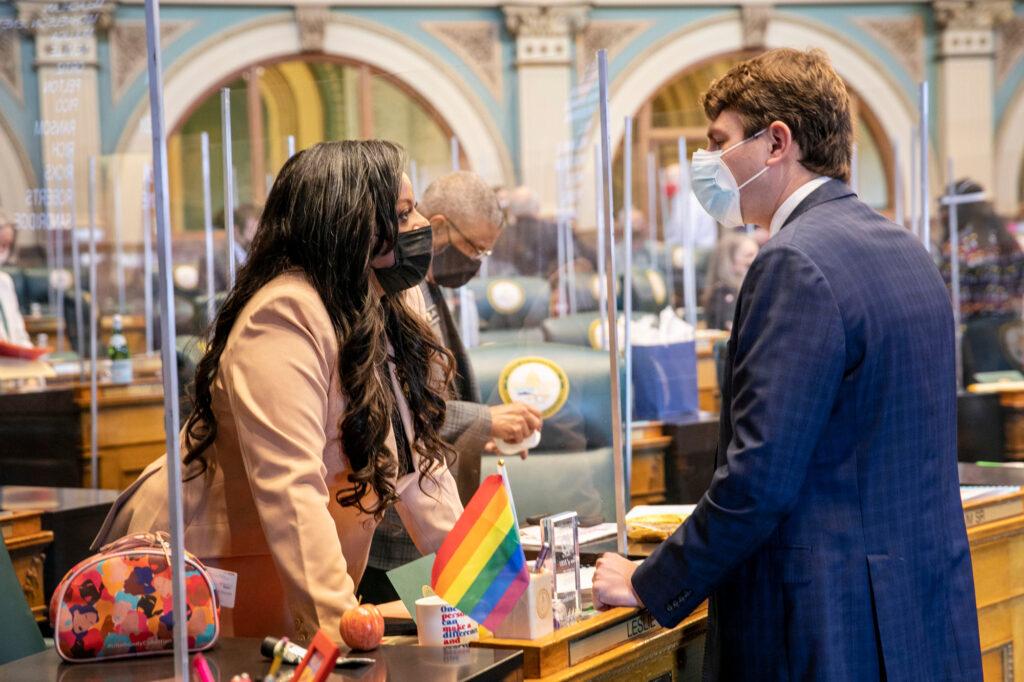
Garnett will lead a historically large and diverse caucus this year. 41 Democrats currently serve in the House, including numerous Latino and Black members, as well as Colorado’s first transgender lawmaker, the first state lawmaker to use a wheelchair and the first Muslim state lawmaker.
Garnett is a bit of a first too; he’s the first straight white male to lead House Democrats in 14 years. Tipper, who’s a member of the Latino caucus, said his selection as Speaker doesn’t take away from the diversity Democrats are so proud to have.
“At his core, that is something that he's very proud of. And frankly he helped shape [the caucus], as someone who was working to maintain the majority in the House,” she said.
Lessons from other contentious sessions
Garnett said one of his inspirations for how he wants to conduct himself in office, and as Speaker, is the Democrat who held his seat before him: former Speaker Mark Ferrandino.
Garnett said Ferrandino made him realize you could lead the chamber while still representing the interests of your constituents. House Democrats come from vastly different districts across the state, and each brings unique life experiences, perspectives, and policy goals to their position. Ferrandino, who now heads Colorado’s Department of Revenue, said one of the most difficult parts of the Speaker’s job is saying “no” to members of your own party.
“There's a lot of things you agree with, but you might have to talk to your caucus members about, maybe this needs to be done a little differently, or ‘let's talk to a stakeholder. How do we get different people engaged to get the policy to a place that can be acceptable?’ Those are difficult conversations.”
Ferrandino was in charge of the House in 2013, an incredibly contentious session when Democrats passed ambitious and controversial policies like civil unions and new gun control laws. Yet Ferrandino thinks the current political climate may be even more challenging.
“There’s less Republicans in the House, and so some of the more moderate reasonable people are not there anymore,” he said.
In 2018’s blue wave, Republicans lost several suburban seats, bringing their numbers down to 24, the fewest seats they’ve held since 1965. As their numbers have decreased, the party has also lost some of its more moderate members.
A divided opposition
Republican House lawmakers got off to a bit of a rough start with Garnett this session when they bucked state tradition and nominated one of their own to serve as Speaker on opening day. It was a purely symbolic effort, since Democrats had more than enough votes to elect Garnett, but the vote came as a surprise. Republicans said the move wasn’t an indictment on Garnett, who works well with the GOP, but Garnett and other Democrats felt it was an example of Republicans putting politics ahead of the institution.
“I’ve had really good talks with Speaker Garnett. We have a deep friendship and a lot of respect for each other,” said newly elected House Minority leader Hugh McKean.
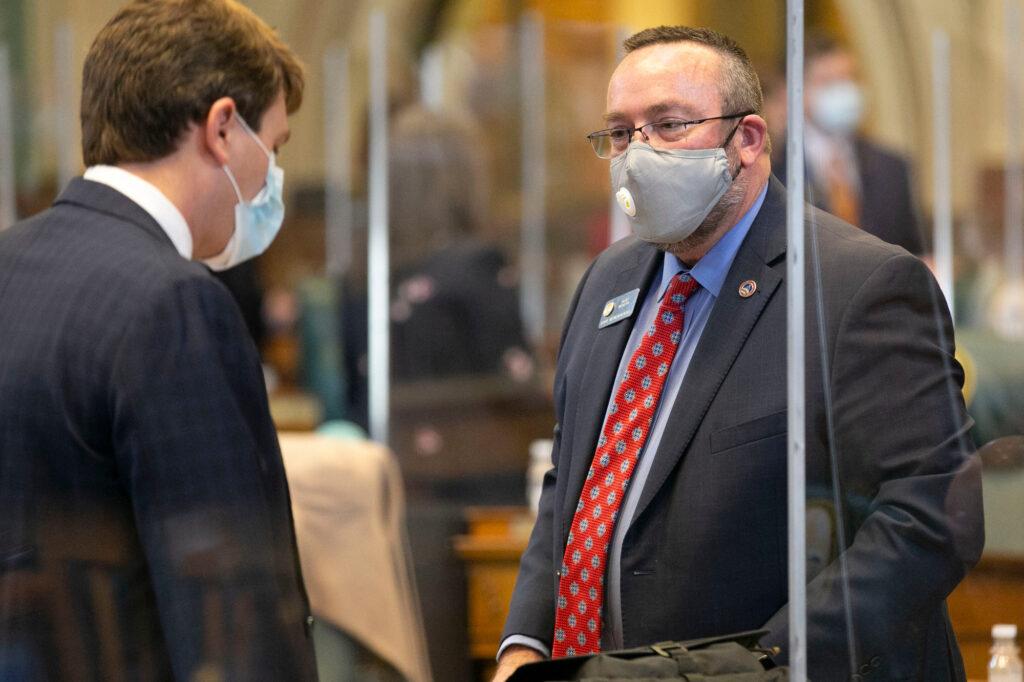
While McKean belongs to the more moderate wing of the caucus and isn't known as a firebrand, Republicans are deeply split on the direction the GOP should take. How that impacts the session is something of an unknown. For his part, Garnett said the fight within the Republican Party isn’t something he plans to step into.
“Are they going to be the party of Trump or are they going to try to move to the center to be more successful electorally and try to gain back some more power? And that has nothing to do with me,” Garnett said. “What we need to do in the chamber is make sure that we're maintaining a steady hand on decorum, make sure that we put the institution first, that we are putting our constituents first in terms of how we treat each other.”
Garnett said his door is always open to Republicans, and he’ll work with them where he can, but that he will ultimately push for the policies Democrats believe are needed to get the state moving in the right direction.
“Especially in this moment in an economic downturn, in a pandemic, people are totally fed up with the partisanship that got us here and they just want us to solve the problems and move forward and stay out of the headlines,” he said.
As the session begins its work in earnest this week, Garnett hopes to start that movement as quickly as possible.

